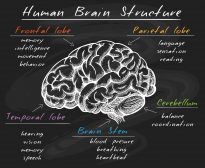Definition
noun
A blood clotting factor in the intrinsic pathway of the blood coagulation cascade and works with clotting factor VIII (antihaemophilic factor) and calcium to activate clotting factor X (Stuart factor)
Supplement
Coagulation, the process of clot formation, involves platelet and blood clotting factors. In humans, the coagulation mechanism is comprised of two processes, i.e. the primary hemostasis and the secondary hemostasis. The latter entails two pathways: (1) intrinsic pathway (contact activation pathway) and (2) extrinsic pathway (tissue factor pathway). Both pathways lead to the formation of fibrin.
The clotting factor IX is also known as Christmas factor. The name is derived from the boy, Stephen Christmas. He was lacking this factor and the deficiency led him to acquire hemophilia. The Christmas factor is produced from the liver. Its production is activated by clotting factor XI (plasma prothromboplastin antecedent) and calcium.
The Christmas factor, when activated to clotting factor IXa, works with clotting factor VIII (antihaemophilic factor) and calcium to activate clotting factor X (Stuart factor).
Deficiency of factor ix results in Christmas disease (haemophilia b).
Synonym(s):
- coagulation factor IX
- clotting factor IX
- factor IX
- plasma thromboplastic component
- blood-coagulation factor IX
- plasma thromboplastin component
- antihemophilic factor B
See also:
Related term(s):
- Christmas factor assay







